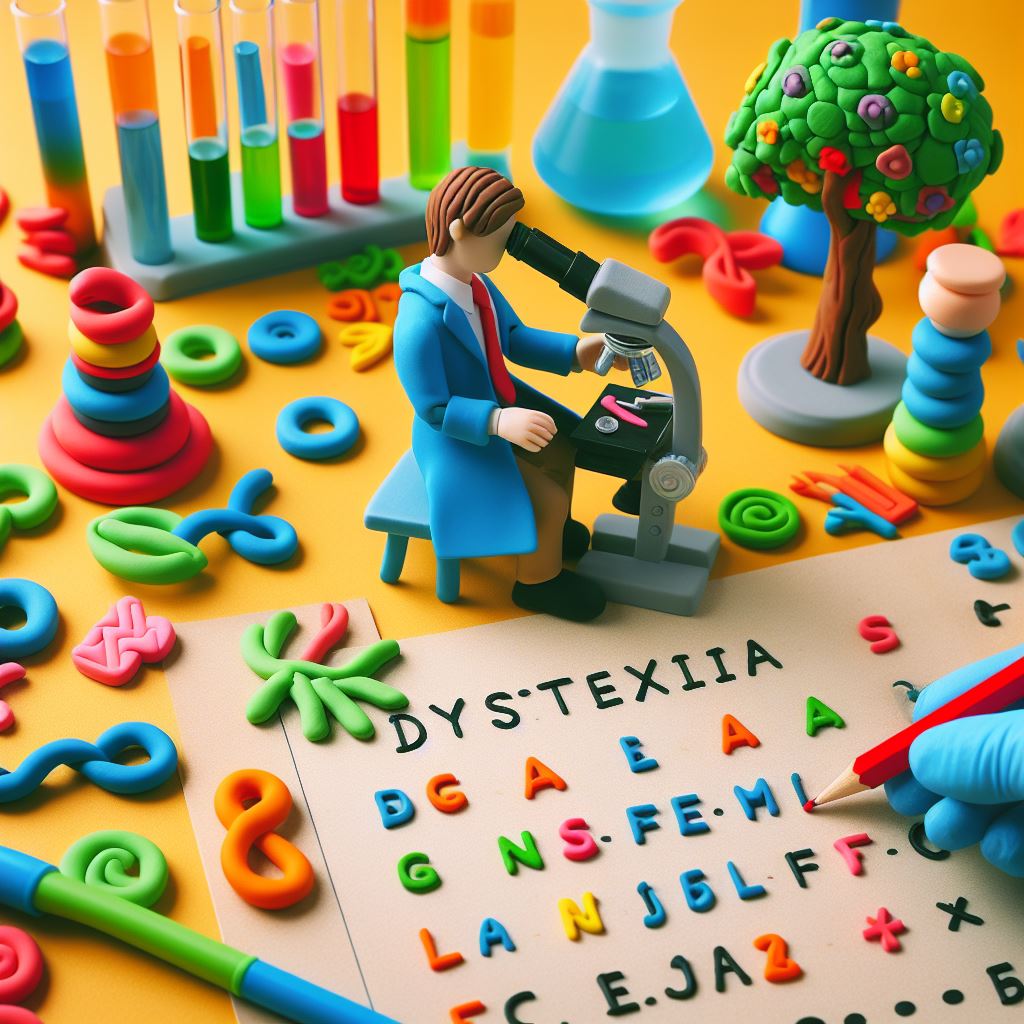EMAIL
Contact page
info@dyslexiefont.com
PHONE
(we are in the Netherlands)
NL: +31 (0)20 820 41 37
UK: +44 2033 180 058
USA: +1 540 227 64 84
Dyslexia is most likely partly caused by genetics. We know this because it tends to run in families. However, it's not solely genetic. If dyslexia were entirely genetic, identical twins, who share the same DNA, would always both have it. While often both affected, this isn't always the case. There isn't a single "dyslexia gene"; currently, over 40 genes have been linked to dyslexia, each likely having a minor effect on its own. In a genetically complex condition like dyslexia, there's no one "dominant" or "recessive" gene. These genes are involved in various brain functions, impacting how brain cells communicate.
Despite progress, more research is needed to fully understand how genetic variations contribute to dyslexia.
We're uncertain. Stress during pregnancy might affect a child's reading abilities, memory, and IQ scores. However, dyslexia hasn't been extensively studied in this context. Other factors like smoking during pregnancy, birth weight, and parental age have been associated with dyslexia. Stress could potentially have an impact, but it's not confirmed. Like with genes, various health factors likely have minor effects individually.

This is also unclear. Researchers have investigated this possibility, particularly after finding some dyslexic children to be deficient in omega-3 fatty acids. Studies on omega-3 supplements for dyslexic children or those with similar conditions like ADHD have shown some improvement in reading abilities. However, the effects are usually small and depend on the specific supplements used.
Contrarily, other studies suggest omega-3 fatty acids have minimal effect on reading or learning. Most scientists believe there isn't enough evidence to support omega-3 as a dyslexia treatment and call for further research. It's also unknown whether omega-3 intake during pregnancy could reduce dyslexia incidence. Nevertheless, omega-3s might aid brain development and potentially enhance IQ scores in children later on. These fatty acids are crucial for brain development as they affect brain cell membranes and cell function.
Omega-3 fatty acids may also influence genes, though they don't alter DNA directly. Further research is necessary to understand how these changes might impact the brain.
EMAIL
Contact page
info@dyslexiefont.com
PHONE
(we are in the Netherlands)
NL: +31 (0)20 820 41 37
UK: +44 2033 180 058
USA: +1 540 227 64 84
DYSLEXIE FONT IS PATENTED COPYRIGHT © 2024 DYSLEXIE FONT B.V. ALL RIGHTS RESERVED. DESIGN BY DYSLEXIE FONT